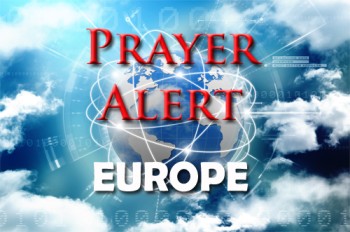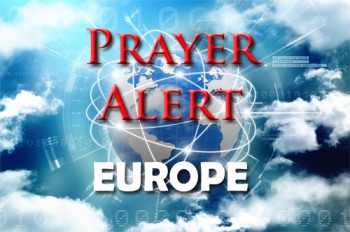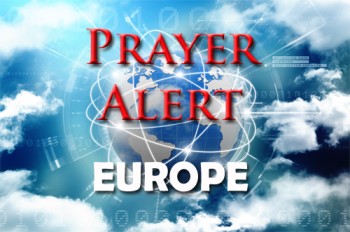Displaying items by tag: Donald Trump
USA: Trump says ‘we’re going in’, sends National Guard to Chicago
Donald Trump has announced plans to deploy National Guard troops to Chicago, describing the city as a ‘hellhole’ plagued by violent crime. He hinted Baltimore could be next, insisting his actions are not politically motivated despite targeting Democratic-led cities. Illinois governor JB Pritzker and Chicago’s mayor strongly opposed the move; Pritzker called it an ‘invasion’, stating that murders have fallen nearly 50 percent in four years. There have already been protests in Chicago expressing opposition, as residents fear further unrest. The announcement follows Trump’s controversial use of troops in Washington and Los Angeles, where a federal judge has recently ruled he overstepped legal boundaries. The judge said that Trump appears intent on ‘creating a national police force with the President as its chief’. He has barred National Guard troops or marines from performing police functions: however, this will come into effect only on 12 September, potentially leaving an opening for the conservative-dominated supreme court to rule on the case.
Trump predicts 'bad awakening' for UK in unhinged TV rant
In a televised cabinet meeting, Donald Trump launched a furious tirade against the UK, blaming wind farms for rising energy costs. Reviving his long-standing grudge against offshore turbines near his Scottish golf course, he falsely claimed that 'windmills' had sent UK energy prices 'through the roof' and were 'ruining every country’. He also repeated discredited conspiracy theories linking turbines to whale deaths, despite scientists attributing recent strandings to climate change and warming seas. Experts note that wind power is in fact one of the cheapest energy sources, significantly undercutting gas, coal, and nuclear power. Surveys show it is the UK’s second most popular form of energy generation, just behind nuclear, while fossil fuels remain the least favoured. Trump also criticised solar farms for taking up too much land and suggested the UK faced a 'bad awakening' for closing down oil operations. His comments marked a rare direct attack on a US ally, stirring debate over his reliability on climate and energy issues.
Big Tech: Trump increases pressure on Europe over digital regulations
Donald Trump is intensifying pressure on the EU and other nations over digital regulations and taxes which he argues unfairly target American technology companies. Threatening new tariffs and restrictions on exports, he has warned that countries with policies he deems discriminatory will face consequences unless they roll back their measures. At the heart of the dispute are the EU’s Digital Services Act and Digital Markets Act, designed to curb monopolistic practices and require platforms to tackle harmful content, but viewed by Washington as an attack on US firms like Google and Meta. The standoff raises tensions at a delicate stage in transatlantic trade talks, with many issues unresolved despite a preliminary agreement. Analysts caution that Europe is unlikely to reverse rules which represent long-sought goals of digital sovereignty, while Trump’s negotiating tactic is seen as ‘keep on pushing, keep on demanding: nothing is ever fully agreed upon.’
USA: Federal Reserve governor threatens to sue Trump for unfair dismissal
The conflict between Federal Reserve governor Lisa Cook and Donald Trump represents a profound clash over institutional independence and executive authority. Trump says he has dismissed Cook, alleging mortgage fraud, but her attorney insists the president lacks the power to remove a governor in this way. According to the Federal Reserve Act, governors should serve a fourteen-year term and may only be removed ‘for cause’, but what qualifies as ‘cause’ is unclear. Trump’s move follows similar attacks against other prominent Democrats, raising concerns about politicising independent regulators. Legal scholars note that recent supreme court rulings granted broader executive authority over some agencies, but not over the Federal Reserve. Cook, refusing to resign, has vowed to challenge Trump’s actions in court. The outcome of this struggle could potentially set a historic precedent. In a separate development, Trump has fired the head of the Centre for Disease Control, Susan Monarez, only a month after she was appointed: see
Ukraine: Trump stirs more controversy, hopes for trilateral meeting
Donald Trump has stirred controversy by suggesting Ukraine is to blame for confronting a nation ‘ten times’ its size, despite Russia being the aggressor in the ongoing war. He downplayed Russia’s responsibility for the invasion, instead criticising former presidents Joe Biden and Barack Obama for their handling of the conflict. He argued that Biden ‘started’ the war and accused Obama of ‘giving away’ Crimea in 2014. He also asserted that Ukraine had only been able to resist due to American weapons and aid. His comments followed the White House meeting on 18 August with Volodymyr Zelensky, European leaders, and NATO officials, at which he pledged US support for Ukraine’s future security. Trump also touted his ‘good relationship’ with Vladimir Putin, saying that he had spoken to him about arranging a trilateral meeting with Zelensky. While he presented this as an early step toward peace, the question now is how Putin will respond.
Trump warns of ‘severe consequences’ if Putin refuses to agree to a ceasefire
Donald Trump has warned of ‘very severe consequences’ if Vladimir Putin refuses to agree to a ceasefire in Ukraine during their meeting in Alaska on 15 August. While not detailing the measures, Trump has previously suggested economic sanctions and hinted at a follow-up meeting that could include Volodymyr Zelensky. Concerns persist among European leaders and Kyiv that any peace proposal might involve Ukraine surrendering territory - particularly the Donbas region - in exchange for halting further Russian advances. In a high-level virtual call hosted by Germany, Zelensky, Trump, and key European leaders reaffirmed their commitment to Ukrainian sovereignty and continued pressure on Moscow. Zelensky dismissed Putin’s threats as bluffs, insisting that sanctions and united international resolve remain crucial. The Alaska summit is seen as both a diplomatic opportunity and a high-stakes gamble, with Ukraine’s territorial integrity and the broader stability of Europe hanging in the balance. Meanwhile, on 12 August Russian troops tried to make a big advance, possibly to put extra pressure on Kyiv to cede territory: see
China / USA: trade truce extended for a further ninety days
Donald Trump has extended the trade truce with China by another ninety days, narrowly avoiding a major escalation between the world’s two largest economies. The announcement came just hours before the previous deadline was to expire, averting a spike in US tariffs on Chinese imports and likely retaliatory action from Beijing. Both governments confirmed the extension, maintaining existing terms while allowing more time for negotiation. This delay is seen as a temporary relief for global markets and US companies which depend on trade with China. Earlier trade disputes saw tariffs soar to triple digits, severely disrupting international commerce and sparking volatility in financial markets. Although current tariff levels remain high, they are significantly lower than the peak rates imposed in May. Talks between Washington and Beijing continue, with hopes for a more permanent resolution and a possible summit between Trump and Xi Jinping later this year. However, key issues remain unresolved.
Ukraine: Trump claims ‘great progress’ in talks with Putin
Donald Trump has described talks on 6 August between his envoy Steve Witkoff and Vladimir Putin as ‘highly productive’, claiming that ‘great progress’ has been made toward ending the Ukraine war. The Kremlin issued a vague statement confirming the exchange of ‘signals’ but did not give further details. The meeting occurred days ahead of Trump’s ceasefire deadline, amid mounting frustration over stalled peace efforts. Volodymyr Zelensky and European leaders were briefed on the talks and reiterated the need to end the war. Despite Trump’s threats of increased sanctions, including raising the tariff on India to 50% for buying Russian oil, Russia has continued its attacks on Ukrainian cities. Three years into the invasion, peace talks have repeatedly failed, and Russia’s preconditions remain unacceptable to Kyiv. Meanwhile, the USA has approved $200 million in military support to Ukraine, with Trump still open to meetings with both Putin and Zelensky. The humanitarian toll of Russian strikes remains devastating and ongoing.
India: relationships with the USA take a downward turn
US-India relations entered a turbulent phase when Donald Trump tore into India for its continued oil imports from Russia and slow progress on trade negotiations. Formerly close to Prime Minister Narendra Modi, Trump, accusing India of funding Russia’s war in Ukraine, has vowed to raise tariffs on Indian exports to 50%. India regards its Russian energy imports as economically necessary; it has a longstanding relationship with Russia and is among the largest importers of Russian oil. Modi’s government has so far resisted Trump’s pressure, particularly over opening up US access to the heavily protected agriculture and dairy sectors. In response to Trump’s belligerent language, Modi has called on citizens to buy only Indian-made goods, leading to greater economic self-reliance. Political commentators note that it will be very difficult for Modi to give any large concessions in a trade deal, given the growing anger within India towards Trump.
USA: leading Republican breaks with Trump over refusal to release Epstein files
A political storm is brewing in Washington as divisions deepen over the Trump administration's refusal to release files related to deceased sex offender Jeffrey Epstein. House speaker Mike Johnson, a close Trump ally, broke ranks by expressing public support for the files' release, citing the need for transparency. However, he later voted to block a Democrat-led resolution calling for that very action. The justice department, led by attorney general Pam Bondi, denies the existence of a client list in the files, and maintains the matter is closed - sparking outrage among both Democrats and Trump’s MAGA supporters, who had been promised accountability. While bipartisan lawmakers are pressing for a House vote, Democrats in Congress and the Senate are pushing legislation to preserve and disclose all Epstein-related documents. The issue has become a flashpoint for demands for transparency and oversight, exposing cracks within the GOP and giving Democrats an opportunity to frame themselves as champions of accountability and reform.









